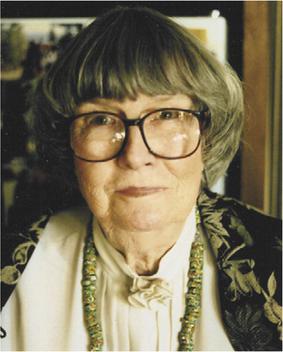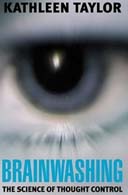Dismissal of the DIMPAC report
On May 11, 1987, the APA Board of Social and Ethical Responsibility for Psychology (BSERP) rejected the DIMPAC report because "[i]n general, the report lacks the scientific rigor and evenhanded critical approach necessary for APA imprimatur." [3]
Along with the rejection memo came two letters from external advisers to the APA who reviewed the report (the APA did not make its internal review public): [3]
- One of the letters, from Benjamin Beit-Hallahmi of the University of Haifa, stated among other comments that "lacking psychological theory, the report resorts to sensationalism in the style of certain tabloids" and that "the term 'brainwashing' is not a recognized theoretical concept, and is just a sensationalist 'explanation' more suitable to 'cultists' and revival preachers. It should not be used by psychologists, since it does not explain anything". [3] Beit-Hallahmi recommended not making the report public. [3]
- The second letter, from Jeffrey D. Fisher, said that the report "seems to be unscientific in tone, and biased in nature. It draws conclusions, which in many cases do not mesh well with the evidence presented. At times, the reasoning seems flawed to the point of being almost ridiculous. In fact, the report sometimes seems to be characterized by the use of deceptive, indirect techniques of persuasion and control – the very thing it is investigating". [3]
The memorandum concludes with "Finally, after much consideration, BSERP does not believe that we have sufficient information available to guide us in taking a position on this issue." [3]
Margaret Singer and her professional associate sociologist Richard Ofshe subsequently sued the APA in 1992 for defamation, frauds, aiding and abetting, and conspiracy—and lost in 1994. Subsequently, judges did not accept Singer as an expert witness in cases alleging brainwashing and mind control. [4]
Impact of DIMPAC report dismissal
The task force completed its final report in November 1986. In May 1987, the APA Board of Social and Ethical Responsibility for Psychology (BSERP) rejected the DIMPAC final report; stating that the report "lack[ed] the scientific rigor and evenhanded critical approach necessary for APA imprimatur". [3] The BSERP board requested that the task-force members not distribute or publicize the report without indicating that the Board found the report unacceptable, and cautioned the members of the task force against using their past appointment to it to imply BSERP or APA support or approval of the positions advocated in the report. [3]
In August 1988, the District of Columbia Court of Appeals reversed part of the case Kropinski v. World Plan Executive Council, based on the lack of scientific support for the theories presented by Margaret Singer during her testimony as an expert witness. [5]
In 1989, Robin George v. International Society for Krishna Consciousness appeared in the California Fourth District Court of Appeal. This resulted in a rejection of Singer's testimony on the basis that the brainwashing theory of false imprisonment constituted an attempt to premise tort liability on religious practices that the plaintiff believed to be objectionable, and that such premise appeared inconsistent with the First Amendment. [6] [7] [8]
In 1990, District Court Judge Lowell Jensen excluded Singer's testimony in United States v. Fishman. According to J. Gordon Melton, upon reading the arguments against Singer and Ofshe's theories on brainwashing and coercive tactics, the court denied their expert testimony. [9]
In 1991, the Patrick Ryan v. Maharishi Yogi case was filed in the US District Court in Washington, DC. Judge Oliver Gasch refused to allow Singer to testify, based on the premises that Singer and Ofshe's theory did not enjoy substantial scientific approval and was therefore not admissible as the basis of expert opinion. [10]
Amicus curiae brief
Before the task force had submitted its final report, the APA together with a group of scholars submitted an amicus curiae brief in a pending case, Molko v. Holy Spirit Ass'n for the Unification of World Christianity before the California Supreme Court. The case was submitted on February 10, 1987, and involved issues of brainwashing and coercive persuasion related to the Unification Church. The brief portrayed Singer's hypotheses as uninformed speculations based on skewed data. [11]
On March 24, 1987, the APA filed a motion to withdraw its signature from this brief, as it considered the conclusion premature in view of the ongoing work of the DIMPAC task force. [12] The amicus as such continued because the co-signed scholars did not withdraw their signatures. These included: Jeffrey Hadden, Eileen Barker, David Bromley and J. Gordon Melton, Joseph Bettis, Durwood Foster, William R. Garret, Richard D. Kahone, Timothy Miller, John Young, James T. Richardson, Ray L. Hart, Benton Johnson, Franklin Littell, Newton Malony, Donald E. Miller, Mel Prosen, Thomas Robbins, and Huston Smith. [11]
Margaret Singer v. APA (RICO lawsuit)
When the APA's BSERP declined to accept the DIMPAC findings, Singer sued the APA and other scholars in 1992 for "defamation, frauds, aiding and abetting and conspiracy" under the Racketeer Influenced and Corrupt Organizations Act (RICO) and lost in 1994. [13] The lawsuit alleged that several top executives at the APA and ASA attempted to destroy careers, charging that from 1986 to 1992 they resorted to improper influence of witnesses in state court litigations, filed untrue affidavits, attempted to obstruct justice in federal litigations, deceived federal judges, and committed wire and mail fraud. The lawsuit also cited a Washington state law firm and twelve other scholars as defendants. [14] Ofshe and Singer said that these actions damaged their reputations as forensic experts in the fields of psychology and sociology in the area of coercive persuasion, preventing their testimony against cults, and specified acts of collusion between several of the defendants and cult groups. [15]
The court summons filed by Singer and Ofshe's lawyer described the rejection of the DIMPAC report by the APA's BSERP as a "rejection of the scientific validity of the theory of coercive persuasion". [16]
The court dismissed the case on the basis that the claims of defamation, frauds, aiding and abetting and conspiracy constituted a dispute over the application of the First Amendment to a public debate over academic and professional matters. The court stated that one could characterize the parties as the opposing camps in a long-standing debate over certain theories in the field of psychology, and that the plaintiffs could not establish deceit with reference to representations made to other parties in the lawsuit. [16]
In a further ruling, James R. Lamden ordered Ofshe and Singer to pay $80,000 in attorneys' fees under California's SLAPP suit law, which penalizes those who harass others for exercising their First Amendment rights. At that time Singer and Ofshe declared their intention to sue Michael Flomenhaft, the lawyer who represented them in the case, for malpractice. [17]

Brainwashing is the controversial idea that the human mind can be altered or controlled against a person's will by manipulative psychological techniques. Brainwashing is said to reduce its subject's ability to think critically or independently, to allow the introduction of new, unwanted thoughts and ideas into their minds, as well as to change their attitudes, values, and beliefs.

Persuasion or persuasion arts is an umbrella term for influence. Persuasion can influence a person's beliefs, attitudes, intentions, motivations, or behaviours.

Margaret Thaler Singer was an American clinical psychologist and researcher with her colleague Lyman Wynne on family communication. She was a prominent figure in the study of undue influence in social and religious contexts, and a proponent of the brainwashing theory of cults.
The term large-group awareness training (LGAT) refers to activities—usually offered by groups with links to the human potential movement—which claim to increase self-awareness and to bring about desirable transformations in individuals' personal lives. LGATs are unconventional; they often take place over several days, and may compromise participants' mental wellbeing.

The Cult Awareness Network (CAN) was an anti-cult organization founded by deprogrammer Ted Patrick that provided information on groups it considered "cults", as well as support and referrals to deprogrammers. It operated from the mid 1970s to the mid 1990s in the United States.
The Center for Studies on New Religions, otherwise abbreviated as CESNUR, is a nonprofit organization based in Turin, Italy that focuses on the academic study of new religious movements and opposes the anti-cult movement. It was established in 1988 by Massimo Introvigne, Jean-François Mayer, and Ernesto Zucchini.
Cult is a term often applied to new religious movements and other social groups which have unusual, and often extreme, religious, spiritual, or philosophical beliefs and rituals. Extreme devotion to a particular person, object, or goal is another characteristic often ascribed to cults. The term has different, and sometimes divergent or pejorative, definitions both in popular culture and academia and has been an ongoing source of contention among scholars across several fields of study.
Steven Fishman is an American former Scientologist whose inclusion of Scientology's secret Operating Thetan levels in a court filing led to the first public confirmation by the Church of Scientology of its doctrines regarding Xenu and the Wall of Fire.
The anti-cult movement, abbreviated ACM and also known as the countercult movement, consists of various governmental and non-governmental organizations and individuals that seek to raise awareness of religious groups that they consider to be "cults", uncover coercive practices used to attract and retain members, and help those who have become involved with harmful cult practices.

Aylsworth Crawford Greene III – known as Ford Greene – is an American attorney, political leader and three-time Mayor of San Anselmo, California. Greene is noted for having successfully conducted litigation against the Church of Scientology and the Unification Church of the United States. He has also been a deprogrammer. Greene is serving his fourth-term as an elected San Anselmo town council member. He was voted to the position of Mayor in 2010, 2015, and 2019.
Steve K. D. Eichel is a psychologist known primarily for his work on destructive cults, coercive persuasion, mind control, brainwashing, and deprogramming. He is a former president of the Greater Philadelphia Society of Clinical Hypnosis and the 2006–07 president of the American Academy of Counseling Psychology, the national membership academy comprising American Board of Professional Psychology (ABPP) Board-certified counseling psychologists. In 2012 he was installed as the President of the Board of the International Cultic Studies Association.
Richard Jason Ofshe is an American sociologist and professor emeritus of sociology at the University of California, Berkeley. He is known for his expert testimony relating to coercion in small groups, confessions, and interrogations.
Jean-Marie Abgrall is a French psychiatrist, criminologist, specialist in forensic medicine, cult consultant, graduate in criminal law and anti-cultist. He has been an expert witness and has been consulted in the investigations of cults. Abgrall is known as a proponent of brainwashing theories.

FACTnet, also known as Fight Against Coercive Tactics Network, co-founded by Robert Penny and Lawrence Wollersheim, was a Colorado-based anti-cult organization with the stated aim of educating and facilitating communication about destructive mind control. Coercive tactics, or coercive psychological systems, are defined on their website as "unethical mind control such as brainwashing, thought reform, destructive persuasion and coercive persuasion".
Jesse Stephen Miller was a psychologist and psychodynamic psychotherapist.

Anthony R. Pratkanis is a researcher, author, consultant, media commentator and a professor emeritus of psychology at the University of California, Santa Cruz. He is the author of several books, and has published research papers in scientific journals on the topics of social influence, fraud, terrorist and dictator propaganda, marketing and consumer behavior, and subliminal persuasion.

Brainwashing: The Science of Thought Control is a 2004 popular science book explaining mind control, brainwashing, thought reform and coercive persuasion by neuroscientist and physiologist Kathleen Taylor. It explains the neurological basis for reasoning and cognition in the brain, and proposes that the self is changeable, and describes the physiology of neurological pathways. It reviews case studies including Patty Hearst, the Manson Family, and the mass murder/suicide of members of Peoples Temple at Jonestown, and compares the techniques of influence used by cults to those of totalitarian and communist societies. It lays out a model FACET – Freedom, Agency, Complexity, Ends-not-means, and Thinking – which she believes can be used to negate the influence of brainwashing techniques.

Paul Robert Morantz was an American attorney and investigative journalist. He was known for taking legal cases alleging brainwashing by cults and self-help groups and for sexual misconduct by psychotherapists. His successful prosecution of Synanon led to an attempt against his life by means of a rattlesnake placed in his mailbox.

Dick Anthony was a forensic psychologist noted for his writings on the validity of brainwashing as a determiner of behavior, a prolific researcher of the social and psychological aspects of involvement in new religious movements.
Molko v. Holy Spirit Association for the Unification of World Christianity was a legal case heard before the California Supreme Court, which issued its ruling in 1988.








